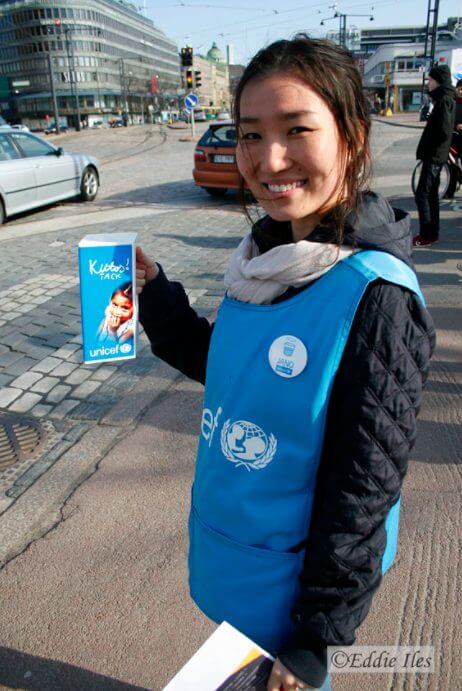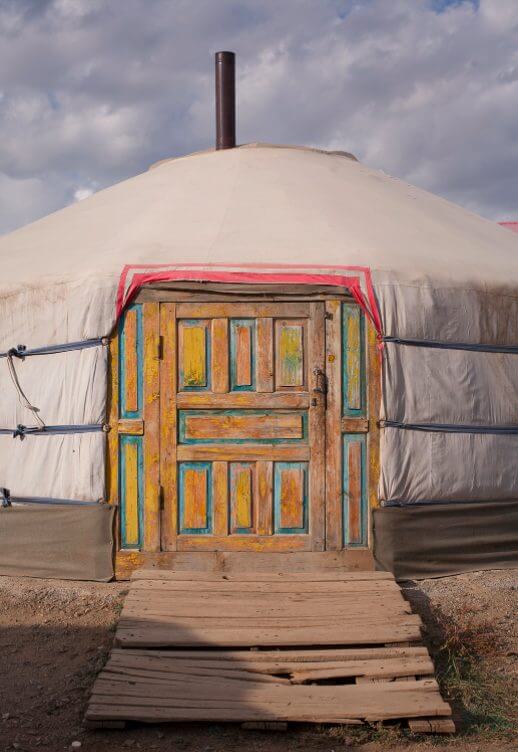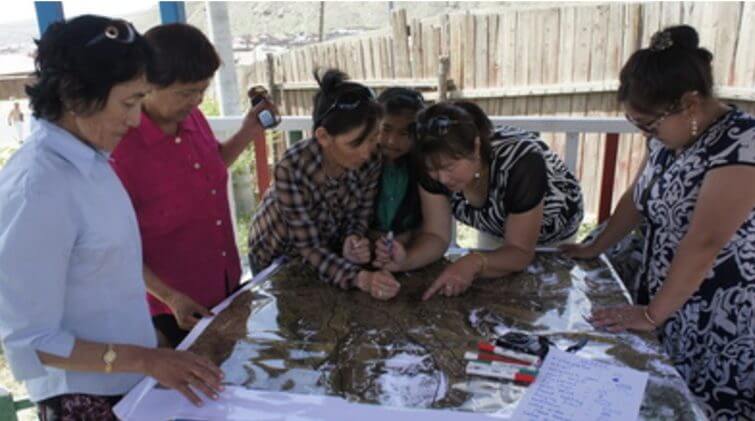Editor’s Note: For the past two years, Conservation Colorado has participated in the Community Solutions Program. The program contributes to the professional development of fellows from around the world by placing them with U.S organizations working to bring change in their communities. We are proud to participate in this program, as we also learn from the fellows we host.
 My name is Enkhtungalag Chuluunbaatar. I am the second international fellow working with Conservation Colorado through the Community Solutions Program.
My name is Enkhtungalag Chuluunbaatar. I am the second international fellow working with Conservation Colorado through the Community Solutions Program.
My mission here for the duration of four months is to learn how Conservation Colorado does the valuable work they do, to contribute to their efforts, and to create and strengthen our network in Mongolia.
Mongolia
My home country is Mongolia, a vast country with one of the last nomadic cultures in the world. Even though I flew halfway around the world to be here, in many ways, I feel at home. The climate, the landscape, the wildlife, the sun, the altitude, the amount of precipitation, and the love for nature are all very familiar. It is no surprise that Denver and Ulaanbaatar, the capital city of Mongolia, are Sister Cities.
In stark contrast to the iconic images of Mongolian landscape and its nomadic culture often featured as travel destination, Mongolia has been urbanizing rapidly for the last 30 years since the country transitioned to a market-based economy. The country has undergone tremendous changes economically, politically, and socially, and challenges have arisen from unplanned urbanization and rapid development.
Modern challenges
About 70% of the total population lives in urban areas, and the number is expected to grow with steady rural-urban migration. The capital city, Ulaanbaatar, originally designed for 500,000 people, is now home to 1.4 million people; half the country’s population. Unplanned urbanization, coupled with poor planning and budgeting, has consequences: lack of basic infrastructure, urban service access, sanitation, environmental degradation and pollution. Ulaanbaatar now has the worst air pollution in the world during the winter.
 The ger (yurt) districts of Ulaanbaatar, an urban sprawl in continuous expansion, with inadequate infrastructure and services, is where about 65% of the city residents live. Air, soil, and water pollution come from power plants, coal-burning household stoves, an ever increasing amount of industries, automobiles, and construction, pit-latrines, and poor waste management systems. These urban challenges disadvantage the most underserved and vulnerable communities, such as low-income families, children, and people with disabilities.
The ger (yurt) districts of Ulaanbaatar, an urban sprawl in continuous expansion, with inadequate infrastructure and services, is where about 65% of the city residents live. Air, soil, and water pollution come from power plants, coal-burning household stoves, an ever increasing amount of industries, automobiles, and construction, pit-latrines, and poor waste management systems. These urban challenges disadvantage the most underserved and vulnerable communities, such as low-income families, children, and people with disabilities.
Community-based solutions
The local NGO I co-founded in Mongolia, Ger Community Mapping Center, focuses on bringing a bottom-up approach to decision-making and urban planning through community mapping.
Our mission is to inform, engage and empower local communities so they can be a part of how the city and neighborhoods evolve and develop.
We believe that the most underserved and disadvantaged communities should be able to voice their concerns, in their way, and participate in how these concerns should be solved.
We work to address an array of issues, ranging from urban service access to urban environmental degradation.
Community mapping is a tool we use to work with local communities. Community mapping allows different stakeholders to understand each other’s perspectives and come to a common solution that is inclusive.
3 Things Colorado and Mongolia Have In Common
Learning from the inner workings of Conservation Colorado and talking to the dynamic staff here has been valuable to improve planning for my work in Mongolia.
Though Denver and Ulaanbaatar are far apart, I found more commonalities between the two regions than you would expect.
- Both cities are experiencing significant population growth, especially that of young people, moving for school and work.
- Following the population growth, both cities are seeing very active developments, which change older neighborhoods and create new communities. This is a common challenge that both cities face and need to address through resource planning to cater to the current and future residents.
- Unstable political and economic currents undermine long-term plans for sustainable development. Where decision-makers and policies are not capable of bringing positive change, civil society needs to and can fill-in and lead the community, city, and the country in the right direction.
Conservation Colorado is a successful example of how an organization can play a leading role in influencing decision-making towards a sustainable and inclusive policies.
Help us empower local communities in Mongolia
 As a volunteer-based organization, our supporters are essential to ensure that we continue to work with local communities in Mongolia and engage them in decision-making on sustainable urban development.
As a volunteer-based organization, our supporters are essential to ensure that we continue to work with local communities in Mongolia and engage them in decision-making on sustainable urban development.
You can help us to procure the necessary tools such as laptops, GPS devices, and cameras to document urban issues, develop maps, and effectively engage locals.
Please join our “Make Mapping Possible” fundraiser, to help empower local communities.



